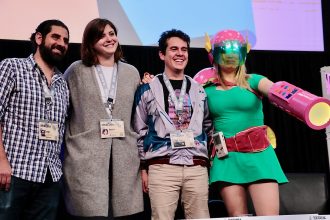GRETELL BARREIRO
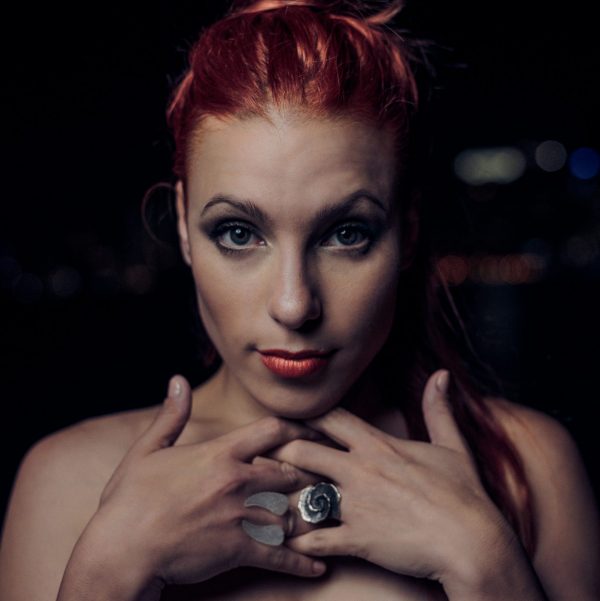
AN ARTIST FROM HAVANA with a TALENT IN FULL BLOOM
Beautiful and talented singer, composer, actress and classical pianist who arrived in the United States from Havana, to expand her musical horizons and remains here with her talent in full bloom. She is a granddaughter of Carlos Fariñas, one of Cuba’s greatest avant-garde musicians of the 1950s. She received an award from Teatro Hispano in New York 2017 as best visiting actress, and was one of the lead singers invited to the opening of the 5th International Music Festival in Havana 2018.She talks about her musical family, the process of writing her songs and music, Cuban music as it is heard outside of Cuba, that is in Japan, Mexico, Miami and even McAllen, Texas as well as her recent achievements in theater.
We interviewed Grettel over the course of three months, frequently interrupted by her busy schedule of performance commitments in three different cities, Miami, New York and La Habana. Nevertheless, she always took time for La Revista Mujer, which she has been a fan of as much as we are fans of her’s since first encountering each other during her performance in McAllen, Texas during the José Martí Awards 2015. Below you can read the the essence of our successive interviews with her.
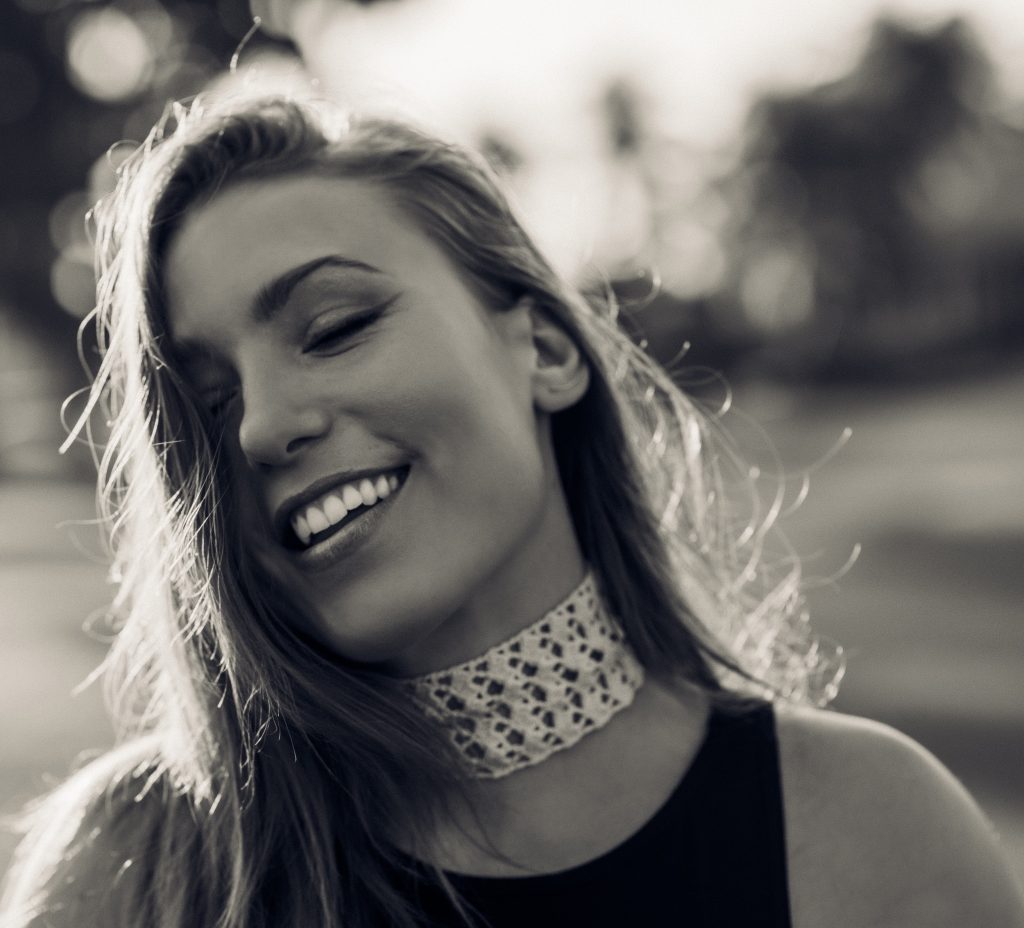
Photo: Andrés Martínez
FAMILY
Gretell, how was growing up in and around music constantly?
I grew up surrounded by a family with a solid musical background. In my family there are important representatives of the musical history of my country. My grandfather Carlos Fariñas was one of the composers of Cuban avant-garde classical music, one of the first to experience electroacoustic music and his work is very important within twentieth century Cuban musical history. My great-uncle, Manuel Duchesne Cuzan, was the director and one of the founders of the National Symphony Orchestra, and was the man who essentially directed the performance of nearly all the avant-garde music in Cuba.In its 50 years commemoration a national postal stamp in Cuba featured his portrait in 2010. On the other hand, I lived with my great-aunt Marina Duchesne Cuzan (Nina), she was a concert pianist, in fact she still plays the piano at 85 years old. Also my grandmother Concepción Duchesne Cuzan was a pianist, dancer, journalist, and “a pedagogue”.
Did you study with your grandfather Carlos Fariñas?
I was 16 years old when my grandfather died suddenly. As a child, like most children, I was not aware of how much I could have learned from him. I would have liked to have taken advantage of his being my accomplished grandfather more on a personal level, as well as, at least, to be able to find answers to the many questions that I now have about music and composition, specifically. I would have loved to have been able to exchange ideas with him.
Sometimes I fantasize that my grandfather is here and that he listens to me. Sometimes I sense in my music some trace of his feelings, his emotions. My mother has told me she sensed that too one occasion. I don’t know what his opinion would be in regard to my work, nor how I would feel under his influence, his tutelage, but just to hold my grandfather’s hand, well you can imagine… I don’t know how we would get along musically speaking, but there is an irreparable empty feeling that the fact of his absence instills in me each time I think of him, which of course, is often.
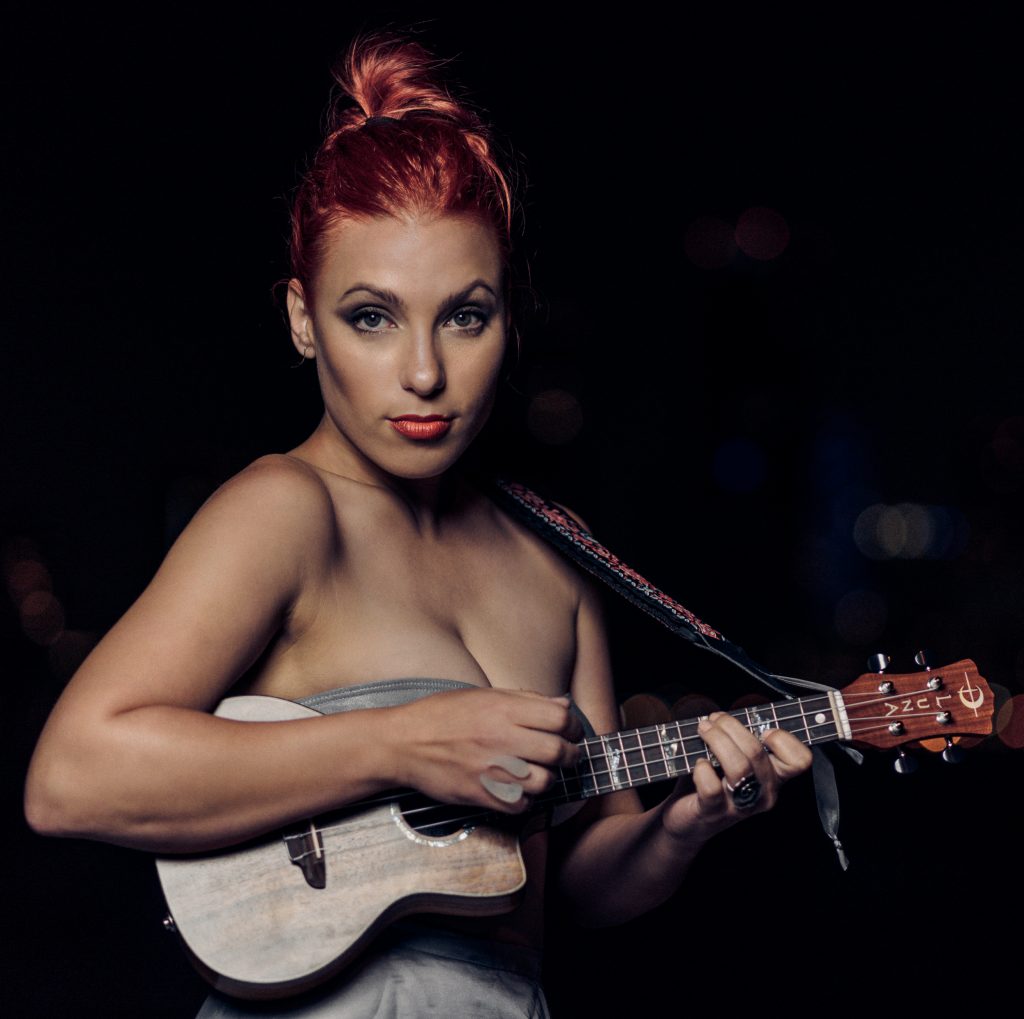
Photo: Andrés Martínez
COMPOSER
When do you start working as a composer and as a performer?
At the age of seven I started studying classical piano at the Conservatory in La Habana, or Havana as they say here, and when studying music, the most natural part of the process is the development of the interpretation, the performance. It is something so natural that it ceases to be a concern. Composingis a search, a constant questioning that concludes with more answers you can imagine, to create and bring out the «reality of sound». The result of this concern is what makes composition so addictive and much more when mixed with performing it.
What is the most satisfying of these two activities?
Listening to and transmitting to the public the music that you create, that people take and understand as your language, your melodies, taken to even a further dimension is very enriching for me, as a musician and as a person. Especially so if your music is a reflection of the vision of a generation, of your time and your culture, both musically and sociologically, whether that’s what you wanted or whether it happens unintentionally. When performing, one is exhibiting a result of that particular time, as well as the one that preceded it, generating a new time, transformed. The music of the present that will be that of the future. Thats what will identify us in this world of equals – with differences -.
Do you write all your songs?
I write all my songs, and I also accept any way they come to me. At first, I wrote only for myself, I kept my songs in a corner, so to speak, as I say in my song «Iguales», one of the first I wrote that was the trigger for my career as a singer in 2009, when my own Pandora’s box opened. As time went by, I began to share that space and to «let in» certain people, friends, artists with whom at the time I had a lot in common and in a natural way, started certain collaborations and co-authorships. For me, composition is a very intimate corner of my personal geography, it is a space in which you are completely naked before the world, showing the best version of yourself that you are able to present at that particular moment.
Have you made adaptations of songs by other authors to give them your personal touch?
I discovered empathy and enjoyment when interpreting and performinglongbefore I started composing. Naturally, I love to sing music that I have not composed. I have had the pleasure of doing my versions of songs by Sting, Fito Páez, The Beatles, Bill Withers, Tom Jobim, Jimi Hendrix, Stevie Wonder, Freddie Mercury, as well as my compatriots Bola de Nieve, Polito Ibañez, Santiago Feliú, and others. I think art is so subjective, you can play the same classical piece, and it will sound different from everyone else. I like to interpret and drink from all kinds of music, I do not limit myself in genres, nor in fashion trends, nor in what «dictates» the industry, rather I believe that I fit in all of that in a natural way. I do not pretend, I just am.
Your songs are like poems and sometimes take a philosophical point of view, have you written or published poems?
I confess that I have had this idea in my head and I would love to write poetry. I have not published my musical texts as poetry, although I have a lot of respect and care for them with no pretensions, the lyrics being a language with images and rhythms of their own. Poetry fascinates me since I was inundated by Juan Ramón Jiménez, Vallejo and Martí and all of their sensitivities and questions. Besides my father is Doctor in Philosophy, perhaps I have inherited some of that?, (laughs). I accept that my personality must be a bit like that, a bit illusive, sensitive, stubborn, rhetorical and dialectical.
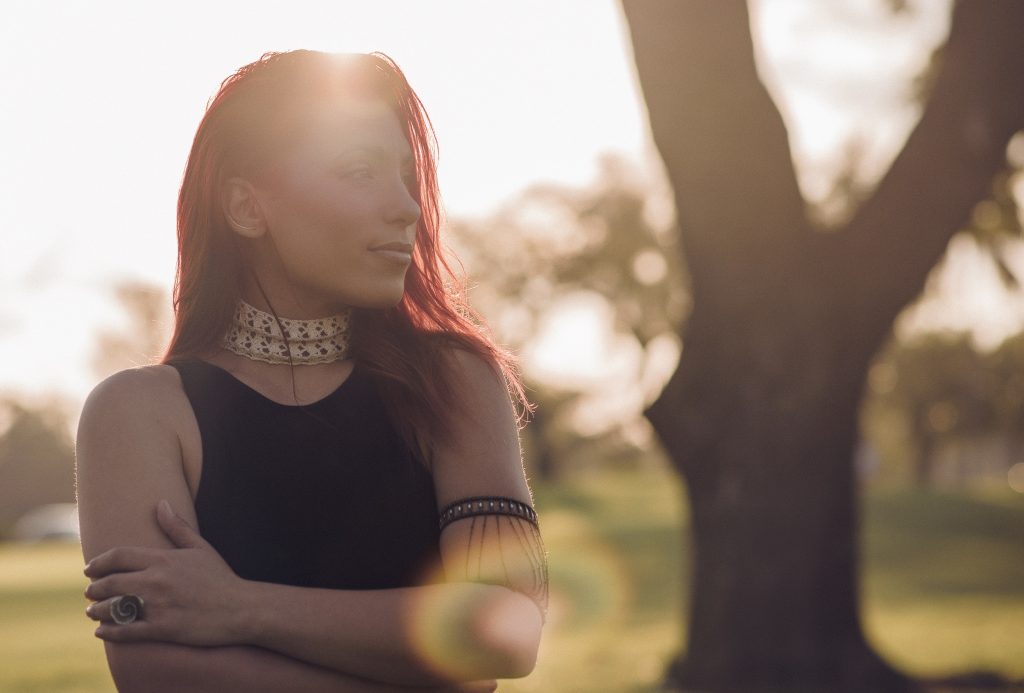
Photo: Andrés Martínez
CUBAN MUSIC
When do you learn to improvise without a score?
In my opinion, playing without a score is the most direct reflection of your tastes and musical influences. It shows the true musicality of the instrumentalist, and in turn, the freedom of music. Although we have a high level of classical education in the Conservatories in Cuba, I would love to see them teaching Popular Music, focused on jazz, improvisation, mastery of the instrument from this point of view, composition.
I’m not a jazz player, but when we left school, I became aware that those guys experimented and went outside the school rules playing Cuban «tumbaos» and popular songs. I wondered why most of us girls did not? This was like a rocket for my imagination and it prompted me to start playing without a score.So I did.
How do you feel Cuban music is received outside of Cuba?
Japan was my first great experience playing and singing outside of Cuban stages. Cuban music is very loved and followed in Japan. Being part of that, of bringing them our way of making Cuban music, of showing them perhaps other sounds or genres from Cuba was enormously satisfying to me. We did a Cuban music workshop at the Tokyo College of Music and were invited by the Walt Disney Resort to be a protagonist of the main show on the year-end 2008 night show, bringing the original songs from children’s films in a Spanish version and arranged in Cuban music. That was incredible!
In 2011 I spent a season in Mexico City working and collaborating with several musicians and bands. I learned a lot about the musician’s life outside Cuba, considering that for us in Cuba, music is our way of life, but in most countries it is a hobby, a sideline, entertainment.
How did you come to sing in McAllen, Texas at the José Martí Awards?
I had just arrived that year from Cuba through the Cuban Artists Exchange, a cultural exchange company that works between Cuba and the United States, invited me to play at the Gala for the event, to show that part of the Cuban music that perhaps is not as well known as the more traditional genres. I don’t like stereotypes, they lock us up and my music defends a different vision, a Cuban music outside of what is generally and internationally known about our music, in terms of gender and also in terms of image.
Have you ever been told that you don’t look Cuban?
Sometimes, yes, and it used to bother me to be told that I don’t look Cuban. Now I take it much less seriously, aware that I can be the person to show others that there are some types of «us Cubans» that they haven’t seen before (laughs). In the event at the José Martí Awards in McAllen, I had the pleasure of sharing with the students at the University there by doing a workshop on Cuban Music and I had the great joy of discovering La Revista Mujer Magazine, which, by the way, won several awards!
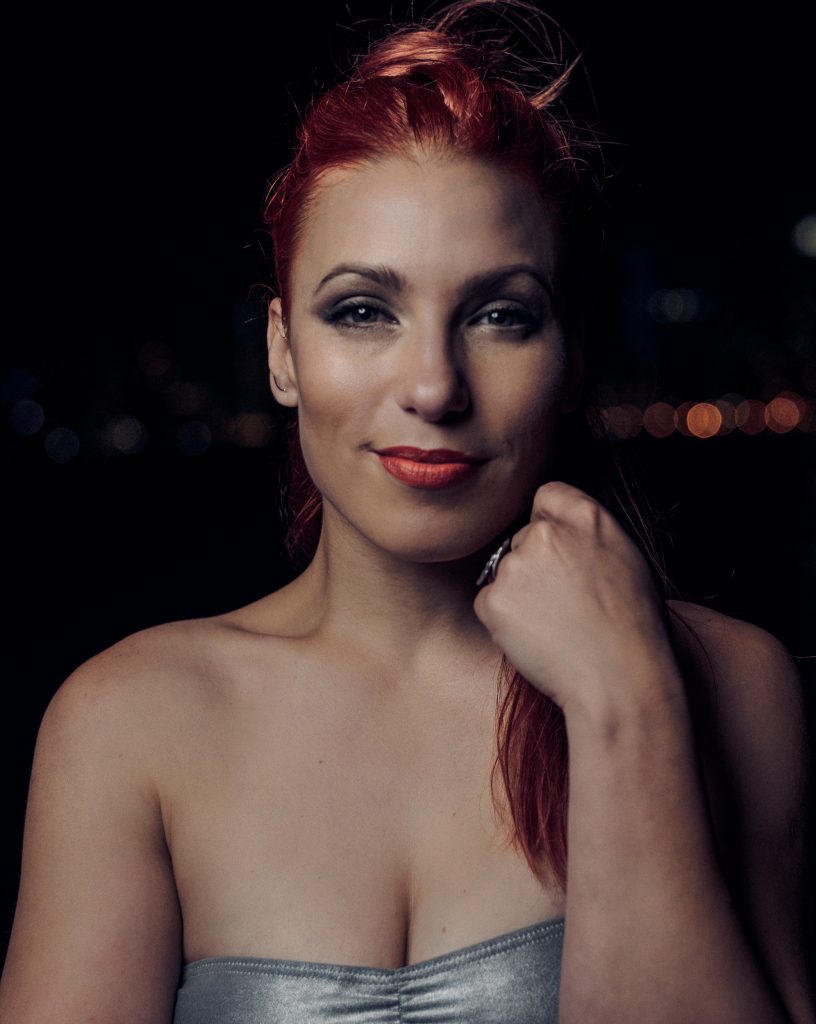
Photo: Andrés Martínez
THEATER ACTING
Have you always been interested in acting?
I always had that curiosity, yes. My piano teacher steered me into a lot of acting exercises to shape the history or the character of my interpretation and performances in classical music. I also took ballet classes from the age of four, from my dear teacher Dulce Marquéz, and contemporary dance, in addition to my current immersion in acting. All this completes the knowledge of and prepares you for work on the stage. The posture of the body to communicate and the control of emotions to achieve the artistic act, whether to play, to sing, to act, I see everything as part of the same, of a great «whole».
You see, when I went to the cinema, sometimes the plot would go away, I would stop following it because I was trying to imagine how the actor might feel while performing whatever part he played, I imagined the set from the position of the actor and I lost myself searching for that feeling, of trying to feel how it would be, being that character in that particular situation.
How did you start out in the endeavour of acting?
Two years ago, in Miami, a friend asked me for a song from my album for the ending of his short film. In our conversations I told him that I really wanted to do a theater workshop, and that’s how it all started. I started out in a musical comedy, where I advised the director and the actors on the original music. On the verge of opening the play in New York, the principal actress had to be absent and the director asked me to step in and act in her place, and as it happened, that role was the most emotional and musical in the play.
A few days after being asked to take the part, I was up in the air on a plane, in flight to New York. his play was «Lysistrata, Huelga de Sexo», an adaptation of the Yoshvany Medina version of the play of Aristophanes, the first one with an anti-war theme and a female protagonist of the Greek theater. The play was very successful and I received the HOLA Award for Best Guest Actress at the Hispanic Theater of New York in October 2017.
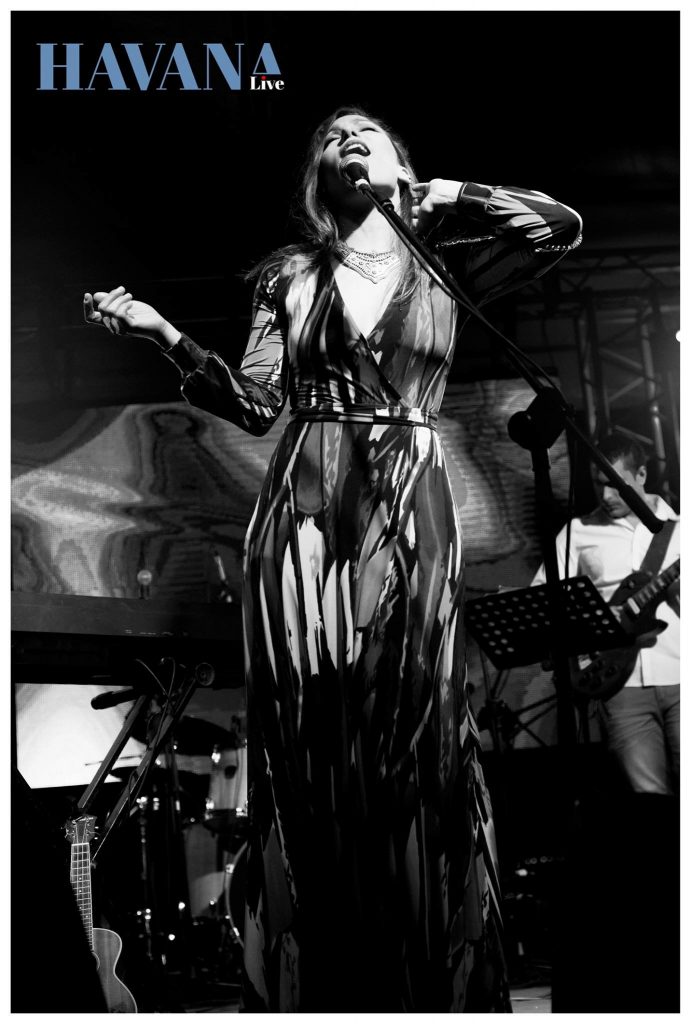 How did you find performing at the opening of the World Music Festival in Havana this past March?
How did you find performing at the opening of the World Music Festival in Havana this past March?
I was incredibly proud to be chosen as one of the main singers for the opening night of the festivalrepresenting Cuban alternative music, which took place atthe Metropolitan Park in Havana, under a large and central bridge over the Almendares River.This was the 5thFestival and drew about 15 thousand spectators. The Festival brings the music of the world to my city, shows the work of well-known and not-so-known artists at the national level and brings together artists and international bands from Australia, Puerto Rico, Spain, Mexico, Colombia, Norway and France, most of whom the Cuban public does not know or have never seen live. Performing there was surreal, a totally different experience from being a simple spectator which I had been for the preceding four years.
What are your plans now for the future, both in music and theater?
I am currently on my Tour “Tour in Havana”, with a series of concerts, filming and promotions in the Cuban media. As for the theater, we have just finished functions in Miami of «Federico y El Público», an adaptation of El Público by Federico García Lorca. We will be back in New York on the second week of September. The theater has made me get to know one of the cities that I like the most, that challenges me and happily we will be there again!
Armando Vega Gil, the celebrated Mexican musician and founder of Guacarock movement in the 1980s, witnessed Grettel performing in Havana, and told La Revista Mujer, she was “beautiful on stage, magnificent”. We a the magazine, after seeing for ourselves her performance in McAllen, completely agree.
Follow Gretell on:
Facebook – @gretellbarreiro
Instagram – @gretellbarreiro
YouTube – gretellbarreiro
SoundCloud – gretellbarreiro
And stay tuned because she will premiere her Spotify channel with her music very soon!
Gretell’sFavorites
Favorite city: Tokyo
Favorite drink: tequila reposado
Favorite instrument: the piano
Favorite beauty skin product: coconut oil
Favorite Hobby: Knitting accessories – Gsings Handmade @gsigns_handmade
Favorite Cuban food: yuca in mojo and cuban tamales
